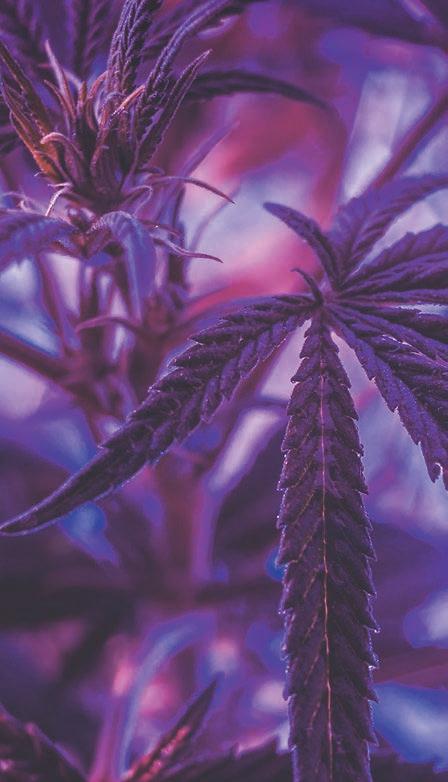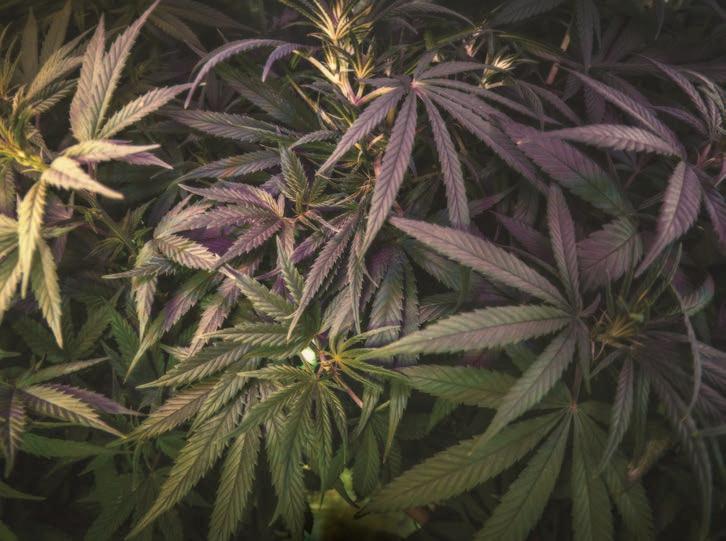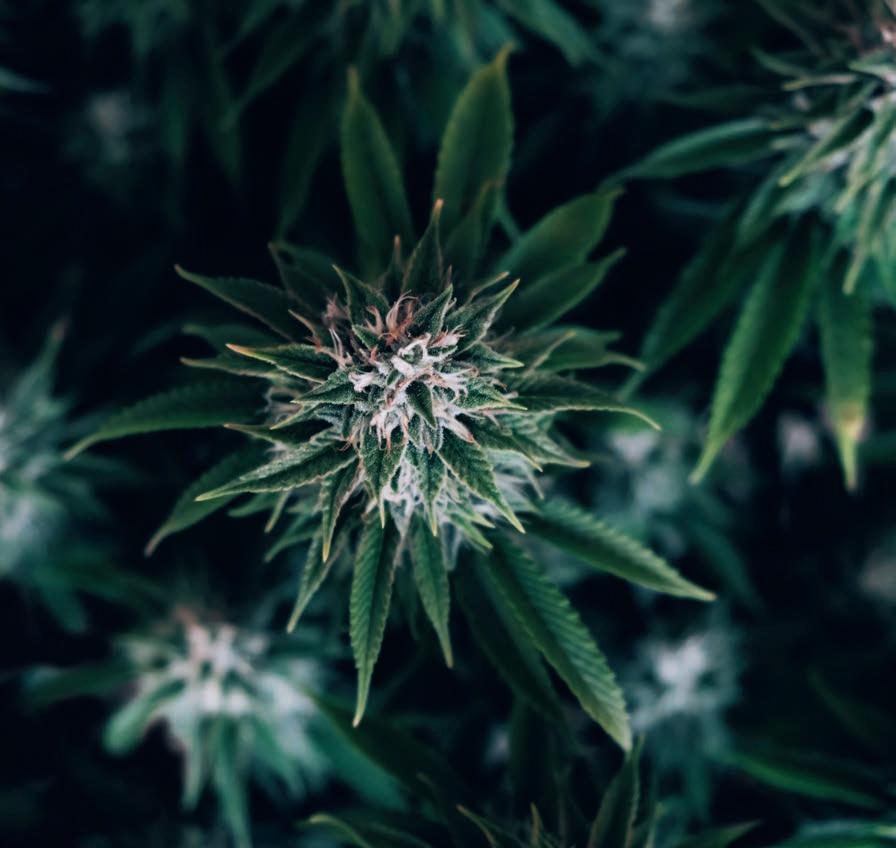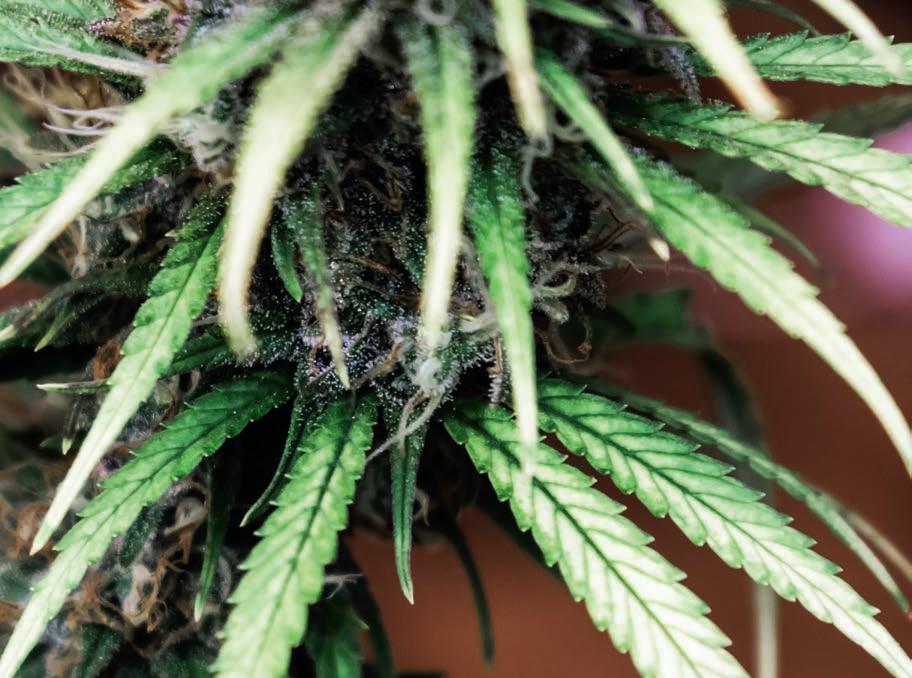
8 minute read
Will a four year long experiment head the netherlands towards legalisation of Cannabis?
Text Lara Smit
Artikel auf Deutsch: www.hanf-magazin.com/ls8
Even though Amsterdam is infamous all over the world for its coffeeshops, selling a wide range of different types of weed and hash, the fact that cannabis is not officially legal in the Netherlands, is a widely unknown fact. However, the introduction of the ‘controlled cannabis supply chain experiment’, might actually change that.
Right now coffeeshops are allowed to sell cannabis because it is tolerated by the Dutch government, as long as they follow certain strict rules. Coffeeshops are not allowed to have more than 500 grams of product in their possession, they can sell a maximum of 5 grams per person per day, they are not allowed to sell to minors and they cannot serve alcohol. Supplying a coffeeshop with cannabis is officially illegal, this is why the term ‘back-door policy’ is often used to describe the current system. Long story short: coffeeshops are allowed to sell, but not allowed to buy.
The Dutch government is planning on making a change to this policy by introducing the ‘controlled cannabis supply chain experiment’. A total of 79 coffeeshops, located in ten different municipalities have been selected to enter in the experiment. These shops will start selling legally produced cannabis, which will be supplied by ten government-designated growers. According to the Dutch government’s website, the aim is to find out whether it is possible to regulate a quality-controlled supply of cannabis to coffeeshops and to see if the experiment has any effect on crime, safety and public health. Opinions differ, however, from happy to be moving in a new direct on cannabis policy, to thinking the progress is too slow, seeing as countries like Canada have opted for nationwide legalisation. The experiment is set to take place in 2021.

At the start of the experiment, there will be a transitional period which will last six weeks in which coffeeshops can decide whether or not they want to buy from the state-designated growers, their own providers or both. After another six weeks they are required to buy their product from the appointed growers, which one(s) out of the ten they decide on, is up to them. Municipalities and coffeeshop owners are hoping that if the experiment turns out to be successful, it can continue, but as of now it is unclear what will happen after the four-year-long experiment.
There has been a lot of discussion on whether or not the experiment will turn out successful. The Union of Cannabis Retailers has expressed a few of their concerns on their website asking if the experiment is still justified after what happened on the 15th of March, the first day of a nationwide lockdown in the Netherlands. At 5PM the prime minister announced in a press conference that all restaurants, bars and coffeeshops were closing down an hour later. It didn’t take long for huge queues to form all over the country. To stop the black market from rising up in demand, coffeeshops were allowed to open up again the next day, as long as they made sure they only served customers to takeaway. The Union of Cannabis Retailers comes to the conclusion that coffeeshops are fulfilling an important social function: the safe and responsible provision of soft drugs. ‘By removing that function, an uncontrollable chaos is created’, it states on their website. In their opinion the government would be better off skipping the experiment and focus on regulating the back-door policy, instead of initiating an experiment that will prevent any policy changes in the coming four years.
Still coffeeshop owners are feeling positive about the experiment. Jill Poppinghaus owns coffeeshop Lucky Luke in Arnhem, one of the ten participating municipalities. “We as a coffeeshop are feeling very good about the experiment. Because of the backdoor policy, we are not a 100% legal. We pay taxes like we’re legal, but apart from that we have no rights. I hope that with the experiment we can move in a direction of legalisation so that we can have same rights as any business in the Netherlands. People need to realise that we are just a shop, just like a bakery or a butchers. The only difference is that we sell something that people might not be used to. If I look at who walks in to my shop on a daily basis, I can’t imagine that there’s still people who think that’s it’s only criminals or junkies that come in. It’s all sorts of people, from lawyers and schoolteachers to off-duty police officers.”
At the same time Poppinghaus feels like there are some downsides to the experiment. “We didn’t have a say in participating, but we are expected to invest a lot of money: a new safe, a new payment system, we need a new security system for the weekly stash that comes in… All at our own expense.” Another challenge that coffeeshops might run in to is the supply of hash, an issue that is also mentioned on the website of the Union of Cannabis Retailers. Poppinghaus explains that in order to make a kilo of hash, you need a hundred kilos of weed. “Right now most of the hash we sell in the Netherlands comes from Morocco, but I don’t think the Dutch growers will be able to produce enough hash for all the coffeeshops in the experiment.” This might definitely pose a challenge, because according to
the 2019 National Drug Monitor by the Netherlands Institute for Mental Health and Addiction (Trimbos), 30% of people that visited a coffeeshop in the previous month preferred hash over weed.
Another one of the participants, Rick Brand, owner of coffeeshop De Baron in Breda, sees positive sides as well as challenges to the experiment. “If you want to legalise cannabis in a way that this plant deserves, it needs to be removed from the list of prohibited substances. Nowadays it’s been legalised with piles of legislations and regulations, different in each country, state, region or city. It’s unnecessary, it just needs to be taken of the list, it’s as simple as that.”
One thing that Brand is very happy about, however, is the fact that he will be able to offer his customers a clean product, while at the same time being able to put an end to the backdoor policy. “Although that didn’t bother me all that much, because there is such a wide range to choose from. The only problem is that I can’t guarantee the quality. I can tell my customers that I put it under a microscope and I can test my product, but I’m like a food taster from ancient Egypt, putting myself at risk to see if a product is any good.”
Another thing that has been under discussion for a while is the amount of pesticides on cannabis. “We don’t know what happens when you smoke weed with pesticides, we have no idea what kind of damage that does, so in that aspect I’d be very happy with regulation and certified growers to make sure we get a clean product.” In 2015 the Dutch National Institute for Public Health and the Environment (RIVM) tested 25 cannabis samples/monsters to see if any pesticides were found. On 23 of the samples pesticides were found, but it was decided that they did not pose a threat to public health when consumed.

The problem being, however, that people usually don’t consume cannabis, but smoke it. What happens when pesticides are being burned and inhaled, is unknown.

But who are these government-designated growers-to-be? Although there haven’t been many that have come forwards about their growing ambitions, one group, named Project C, has. Consisting of a GP, a politician and a lawyer, they probably not the first you’d think of to become cannabis cultivators. According to Joep van Meel, the politician, it’s time to put a stop to the current ambiguous backdoor policy. “It’s great that the government is doing this, but the experiment has to succeed. If it fails, this discussion will be off the table for the next thirty years.” Van Meel believes that with their different backgrounds, they will be able to tackle the challenge from different perspectives. “Ronald [Roothans, GP] has seen cannabis-related problems in his medical practice, but also patients that use it for pain. Peter [Schouten, lawyer] sees the criminal law side of things: people that lose their home or are being threatened by gangs. As for me, I’ve been active in politics for a while and I think it’s time for a change because we have a drug-policy that isn’t based on scientific research.”
But what got the trio motivated for their growing ambitions? Is it cold hard cash or are they hoping for reform in drugpolicy? “Our first and foremost motivation is our ideal, we think the current policy is ridiculous. I smoke a joint from time to time and I think that the stigmatisation of cannabis users is very disappointing. But at the end of the day it’s still a business, so of course we’re hoping to make some money out of it, but at the same time we’re planning on spending 30% of our net profit on research and addiction care.”

With different views, ambitions and benefits to the experiment, the only question that remains is if this is really the best way to move towards legalisation. “We’re only moving slowly towards legalisation now, whereas we used to be one of the most forward thinking countries when it came to drugs. It’s a shame,” says Poppinghaus. With the first coffeeshops dating back to the seventies, it seems like the Netherlands has been at a standstill for decades, while countries like Canada have gone for full legalisation. Would a four year experiment with government-designated growers be what the Netherlands need before possibly moving onto the legalisation of cannabis?










